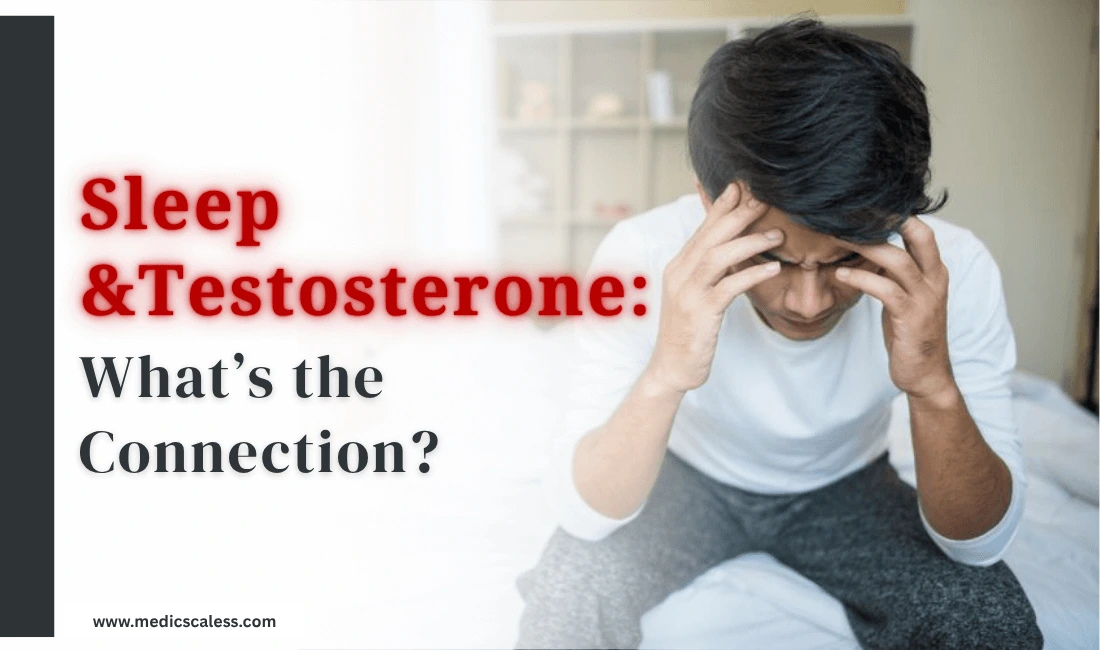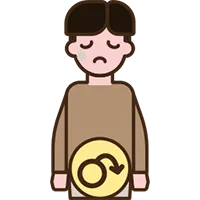
Table of Contents
Most people don’t realize that sleep and testosterone influence each other closely and play a role in your mood and sexual desires. One week of less than five hours of sleep per night can lead to a testosterone decrease of up to 15%, as proven in a study published in the Journal of the American Medical Association (JAMA).
Then what’s the significance of this topic, you may wonder. Not getting enough sleep brings down testosterone, and low testosterone interrupts your sleep. While you stay up late going through memes online, your hormones could be trying to catch your attention. We will break down the whole story and discover how deeply this relationship works.
Does Sleep Affect Testosterone (Sleep and Testosterone)?
So what’s the short response? Yes. Sleeping patterns indeed affect testosterone levels. Sleeping is important for testosterone since it boosts hormone production, especially in REM sleep. Literature shows men who do not get 5 hours of sleep every night have lower testosterone in the morning than those who get sound sleep of 7–9 hours.
Why Testosterone Matters?
There is more to sleep and testosterone than just masculinity and strength. It is the main character in:
- An adequate amount of testosterone will help you experience a lively and satisfying sex life. and if incressing our performance than also visit our product is like : isentress 400 mg , tapal 100 tablet uses , lovegra tablet uses , lopimune , trajenta duo 2.5/500 price and last is chocolis Etc..
- It supports the growth of your muscles and gives your bones enough strength to manage all your daily activities.
- Helps you handle negative emotions, so you become less grumpy.
- Helps regulate your body’s fat and controls the smoothness of your internal calorie-burning process.
- Allows you to remain highly focused and have plenty of energy all day.
How Much Sleep Do You Need To Support Healthy T?
Most adults need to get between 7 and 9 hours of sleep every night. Still, the more important thing is the quality of your sleep, since it’s important to sleep without being disturbed for good testosterone production. Men who slept less than five hours a night for a whole week experienced a drop in testosterone by 10–15%.
There is a price to pay when it comes to your hormones from binge-watching at night.
What Happens If You Don’t Sleep Well?
Lack of sleep can result in a chain of health issues apart from problems with your sex hormone.
- Reduced libido
- Erectile dysfunction might sometimes trigger premature ejaculation.
- People also experience tiredness and impatience.
- An accumulation of extra body fat
- Trouble focusing and remembering things
Whenever you notice you are tired and in a low mood, your sleep could be the issue.
Effects Of Testosterone On Your Sleep
At this point, the situation devolves into a hormonal conflict. Poor sleep depletes your sex hormone, i.e, testosterone, and in a cunning turn of events, low testosterone also disrupts your sleep. Men who are low on T frequently find themselves to be;
- Spending the entire night staring at the roof while suffering from sleeplessness.
- Only exploring the surface of sleep rather than infrequently entering those deep, restorative sleep states.
- Interrupted often and infuriatingly at night.
It doesn’t matter whether your poor sleep schedule affects the testosterone or if it’s the other way around; the loss is yours ultimately.
Can High Testosterone Affect Sleep, Too?
Yes, but only very seldom. Overly elevated testosterone, frequently brought on by the use of steroids or supplements, may be a factor in:
- Sleep apnea
- Sweating at night
- Increased relentless
In a nutshell, equilibrium is essential.
Guide To Low Testosterone Levels: How To Manage It?
Low testosterone can enter covertly and cause mood swings, low energy, restless nights, and a sex urge. However, the good thing? You can handle it. How? Here it is.
- Sleep like a baby because it can spike your testosterone levels like nothing else.
- Put down your phone and pick up some dumbbells, as lifting also raises your T-levels.
- Relax and take it easy, since stress destroys your mood as well as your testosterone.
- Fill your body with healthy food and not factory-packed munchies.
- Your hormones may occasionally demand assistance from experts, so call them.
Final Thoughts: Sleep And Testosterone
Sleep serves as a natural tune-up, particularly for testosterone, and is more than simply a respite from a stress-filled day. Imagine it as free hormone treatment that you can have every night, that too free of cost. Perhaps your mattress is crying for attention, rather than your diet or exercise regimen, if you have been having trouble with energy, mental state, or performance.
Go to social media for a wealth of ideas and tips,

 Erectile Dysfunction
Erectile Dysfunction Smart Pills
Smart Pills Pain
Pain Dapoxetine
Dapoxetine









 Home
Home  Checkout
Checkout